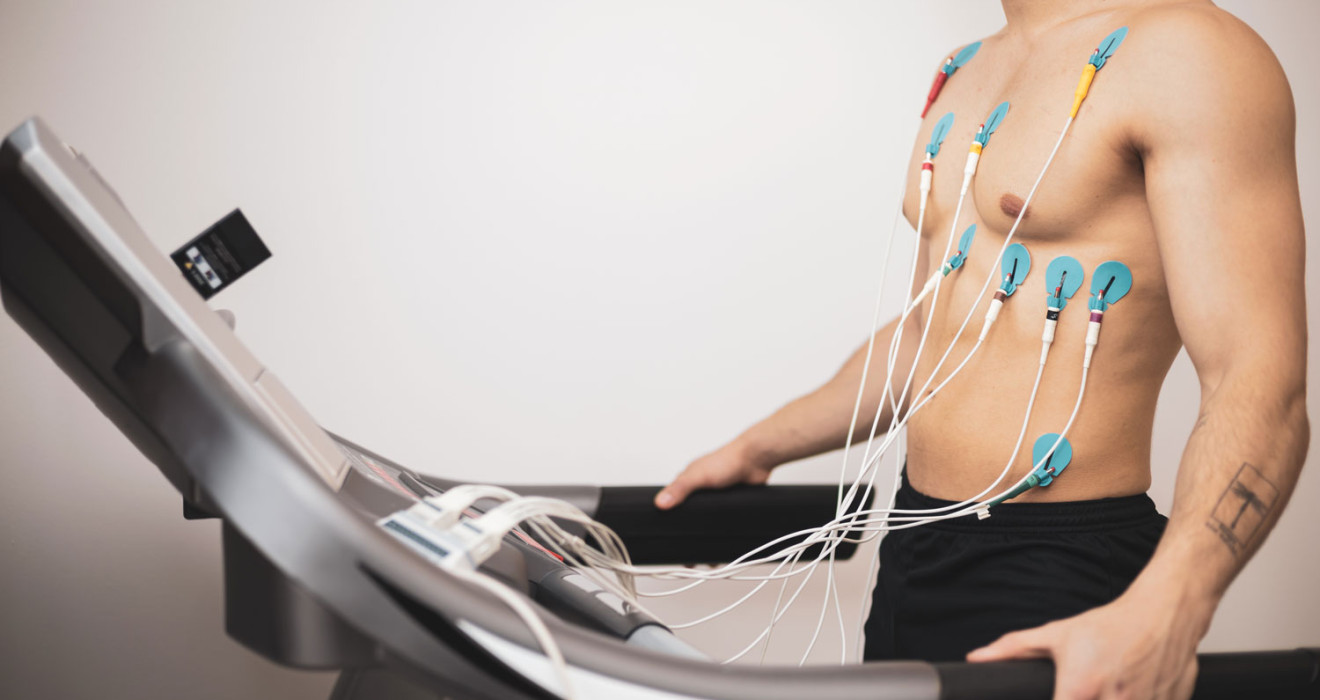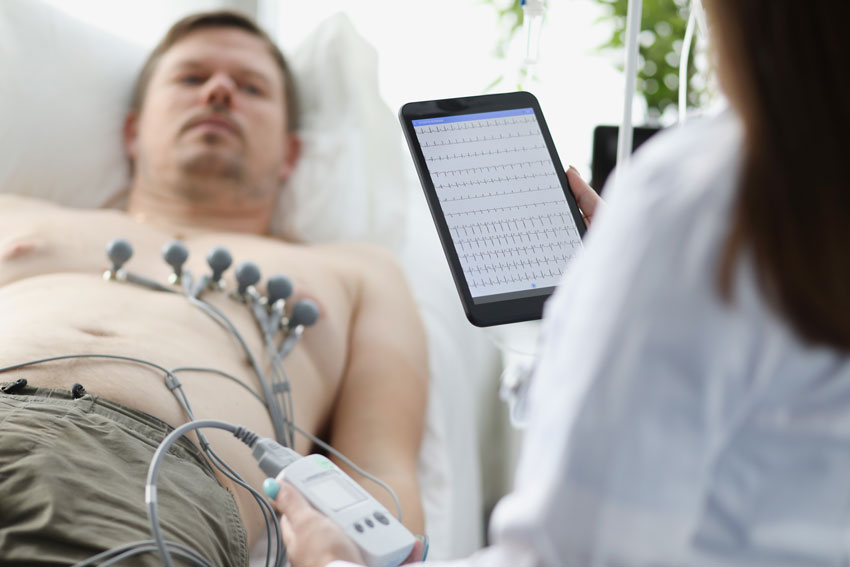
Exercise Test (Stress ECG)
Today, there are many different cardiovascular diseases. Various tests are performed to diagnose these diseases. The exercise test is one of these examinations. In the test, the patient is taken to the motorized treadmil. Blood pressure and ECG (or EKG) recording are monitored during the test.
What is Exercise test (Stress ECG)?
Exercise test is done to measure the electrical activity in your heart during exercise. It is also called an exercise EKG.
Why is Exercise Test (Stress ECG) performed?
It is used in the diagnosis of heart diseases. It is also used to measure how the heart responds under stress. This test aims to determine how healthy the heart vessels are and the risk of heart disease.
How is the Exercise test performed?
Exercise ECG is performed in the exercise laboratory of a hospital or medical centre. Factors such as the patient's heart rate and blood pressure are measured during the test. Then, the patient is asked to exercise on an exercise device such as an exercise bike or treadmill.
During exercise, heart activity is monitored, and an ECG is recorded. The patient's condition is constantly monitored, and intervened when necessary during the test.
What is done in the Exercise test (Stress ECG) Process?
The exercise ECG consists of three phases. These stages are as follows:
- Preparation stage: At this stage, the patient's medical history is taken, and information is given on how to perform the physical examination and test. At the same time, the patient is instructed on what to do during the exercise.
- Test phase: At this stage, the patient is placed on an exercise device such as a bike or treadmill, and cardiac activity is monitored during exercise. Factors such as heart rate, blood pressure and respiratory rate are measured during exercise.
- Post-test: At this stage, the patient's heart rhythm and blood pressure are measured while resting. The patient's condition is evaluated, and information is provided about the results of the ECG exercise.
Which Diseases Can Be Detected by Stress ECG?
With exercise ECG, coronary artery disease, heart capacity, arrhythmia and other heart problems can be detected. It is also used to determine the risk of heart disease.
Is It Risky?
Exercise testing is generally a low-risk test. However, it can be risky for some people with heart disease or other health problems. Therefore, you must follow your doctor's recommendations and instructions before the test.
How is the Exercise test (Stress ECG) Interpreted?
Stress ECG results are interpreted by analyzing the electrocardiogram (ECG) data measured during the test.
- Positive result: This result may indicate heart disease. A positive result is obtained if there are symptoms such as abnormal heart rhythm, blood pressure elevation, ECG findings or chest pain during the test.
- Negative result: This result usually means that heart health is normal.
- Suspicious positive result: This result may require repeat testing or further testing.
- Symptom-positive result: This result means there were symptoms (e.g., chest pain) during the test.
Frequently Asked Questions
-
Vascular occlusion can be detected as a result of the test if the exercise produces symptoms (for example, chest pain) during the test. However, additional tests may be required for the definitive diagnosis of vascular occlusion.
-
Adults who exercise regularly and have a low risk of heart disease should have an exercise test every few years. However, high-risk individuals need more frequent testing.
-
Stress ECG is used to assess heart health and endurance level. Accordingly, factors such as heart rate, blood pressure and electrocardiogram (ECG) are measured during the test.
-
Cardiologists or trained health professionals who specialize in heart health should perform the exercise ECG.
-
It is usual for blood pressure to go up during the test. Because during exercise, the heart beats faster and blood pressure rises. However, very high blood pressure levels may cause the need to stop the test. It is important to measure blood pressure before the test and to plan the test in high blood pressure patients.


